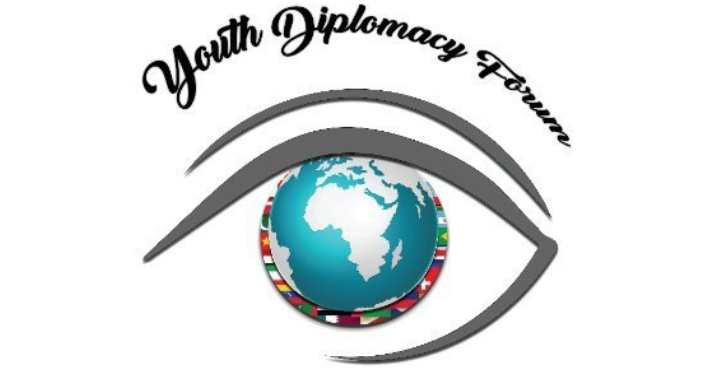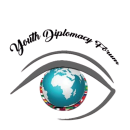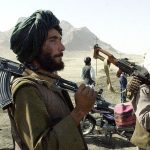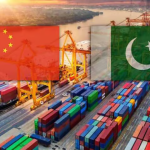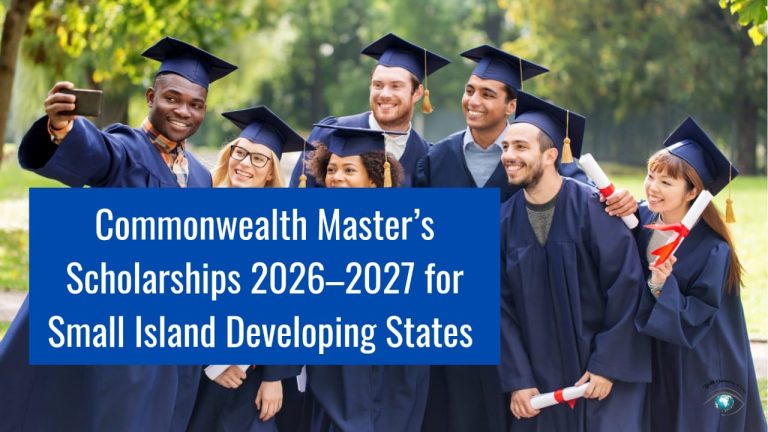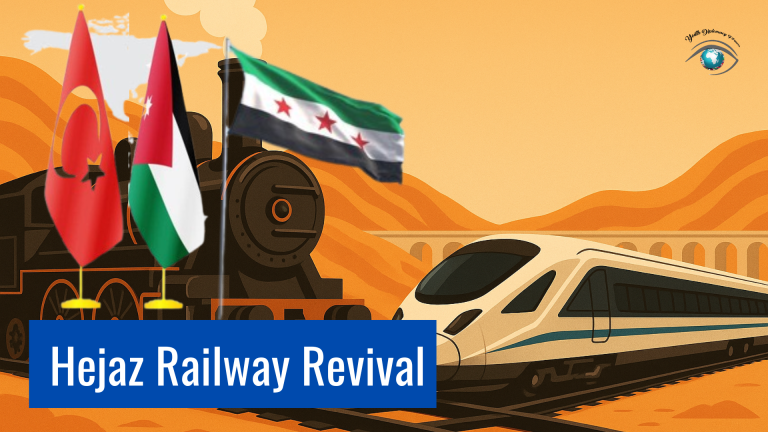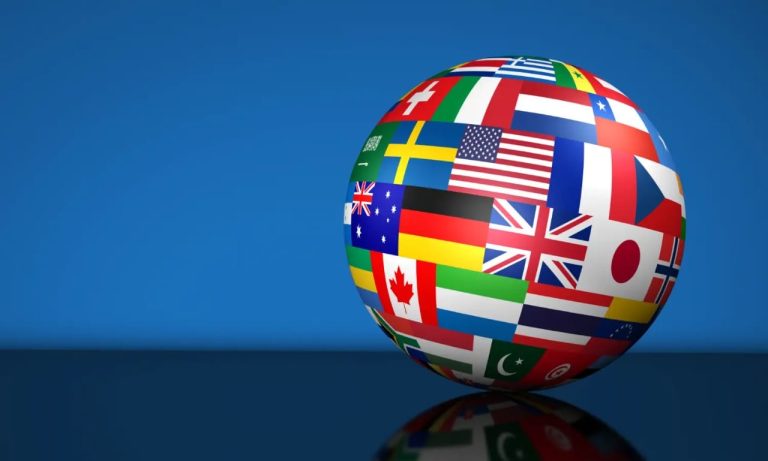Career Path Guide: From Education to Professional Growth: Career Opportunities after BS International Relations in Pakistan
The landscape of career development for International Relations (IR) and Social Sciences graduates in Pakistan has evolved dramatically in recent years. With over 3 million students enrolled in Pakistani universities and a growing emphasis on global connectivity, understanding your career development fundamentals becomes crucial for long-term professional success. So, the basic question of every student before choosing the Social Sciences is: what are the Career Opportunities after BS International Relations in Pakistan?
Understanding Your Career Assessment Tools:
Before embarking on your professional journey, conducting a thorough self-evaluation is essential. Career assessment tools help you identify:
- Core competencies: Analytical thinking, research skills, cross-cultural communication
- Interest areas: Policy analysis, diplomatic relations, social research, international development
- Professional values: Service to society, global impact, cultural understanding
- Skill gaps: Technical skills, language proficiencies, sector-specific knowledge
Professional Goal Setting Framework:
- Short-term goals (1-2 years): Internships, skill development, networking
- Medium-term objectives (3-5 years): Entry-level positions, specialization areas
- Long-term vision (5+ years): Leadership roles, expertise recognition, career advancement
The career exploration process should include informational interviews with professionals in your target fields, attendance at sector-specific events, and engagement with alumni networks from your institution.
Education to Career Planning: Choosing the Right Academic Path
Pakistan’s higher education system offers diverse opportunities for IR and Social Sciences students. Graduates can pursue careers in foreign services, international organizations, media, academia, think tanks, NGOs, and embassies, making strategic academic planning crucial.
Career Opportunities after BS International Relations in Pakistan
Degree Selection Strategies:
- Bachelor’s Level: Focus on broad-based IR curriculum with regional specializations
- Master’s Programs: Choose between MA International Relations, MS Strategic Studies, or specialized degrees like Conflict Resolution
- Professional Certifications: Project Management, Digital Marketing, Data Analysis
For Social Sciences Students: Upon graduation, you will be equipped with the knowledge and skills to think deeply and critically about the issues you face locally and globally, preparing you for diverse career paths.

Educational ROI Considerations:
According to recent data, the return on investment for social sciences education in Pakistan varies significantly by specialization and career path chosen. Students should consider:
- Public sector opportunities: Foreign Ministry, Planning Commission, Provincial governments
- Private sector growth: Multinational corporations, consulting firms, research organizations
- International prospects: UN agencies, international NGOs, diplomatic missions
Course Planning Methods for Career Alignment:
Research Methodology: Essential for policy analysis and academic careers
Regional Studies: Specialization in South Asia, Middle East, or other regions
Economic Analysis: Understanding of international economics and development
Language Skills: Arabic, Chinese, French, or other strategic languages.
Technology Integration: Digital diplomacy, data analysis, GIS applications:
Essential Professional Skills for Career Advancement.
Alongside these essential skills, mastering technical competencies has become equally important in today’s professional world.
Technical Competencies for Modern Professionals
The modern IR and Social Sciences professional requires a diverse skill set combining traditional analytical abilities with contemporary technical competencies.
Research and Analysis Skills:
Quantitative analysis: Statistical software proficiency (SPSS, R, Python)
Qualitative research: Interview techniques, ethnographic methods, content analysis
Policy analysis: Framework development, impact assessment, recommendation formulation
Communication Excellence:
Written communication: Report writing, policy briefs, academic publications
Public speaking: Presentation skills, media interactions, diplomatic communication
Cross-cultural communication: Cultural sensitivity, international protocol
Digital Competencies:
Social media analytics: Understanding digital diplomacy and online engagement
Data visualization: Creating compelling presentations of research findings
Project management software: Asana, Trello, Microsoft Project
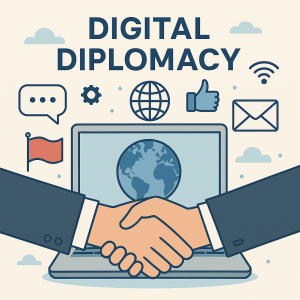
Soft Skills Development Priority Areas:
Leadership and management are imperative in the area.
Team coordination: Managing diverse, multicultural teams
Conflict resolution: Mediation skills applicable in various contexts
Adaptability: Thriving in changing international environments
Critical Thinking Applications are important for the area
Problem-solving: Complex international issues analysis
Strategic thinking: Long-term planning and scenario development
Cultural intelligence: Navigating international business and diplomatic contexts
Professional Networking Strategies for Career Growth
Besides technical expertise, cultivating the right networks plays a crucial role in shaping career opportunities, especially within Pakistan’s unique professional landscape.
Building Industry Connections in Pakistan’s Context

Professional networking remains one of the most effective career advancement strategies for IR and Social Sciences graduates. With 73 open jobs in international relations in Pakistan currently available, strategic networking becomes essential for accessing opportunities.
Local Professional Networks:
Pakistan Institute of International Affairs (PIIA): Premier platform for IR professionals
Islamabad Policy Research Institute (IPRI): Think tank networking opportunities
Pakistan Society for International Affairs: Regional chapters for networking
Alumni associations: University-specific networks and mentorship programs
International Networking Platforms:
Young Professionals in Foreign Policy (YPFP): Global network with Pakistan chapter
UN Youth Networks: Various specialized agencies and programs
Regional organizations: SAARC Youth Forums, OIC Youth Programs
Mentorship Program Development
Academic mentors: professors with industry connections
Industry veterans: Senior professionals in target career areas
Peer mentors: Recent graduates in similar career paths
International mentors: Global professionals for broader perspectives
Effective Mentorship Strategies:
Clear goal setting: Define specific learning objectives
Regular communication: Scheduled meetings and progress updates
Reciprocal value: Offer research assistance or contemporary insights
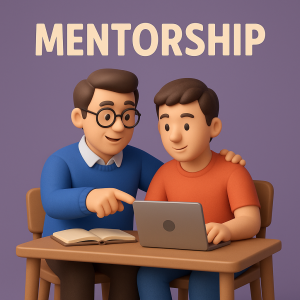
Long-term relationship building: Maintain connections throughout career
Navigating the Job Market: From Applications to Career Success
To move confidently from job applications toward long-term success, graduates must also understand how market research can guide smarter career choices in Pakistan.
Market Research Methods for Pakistani Graduates
Understanding the job market landscape is crucial for career success. Recent analysis shows that the “misalignment” between the demand and supply of graduates has contributed to the higher unemployment rate in Pakistan, making strategic job market navigation essential.
Government and Public Sector:
Ministry of Foreign Affairs: Diplomatic postings, policy analysis roles
Planning Commission: Development project management, research positions
Provincial governments: International cooperation departments
Defense and security agencies: Analysis and advisory roles
Private Sector Opportunities: The graduates of this subject are hired by major transnational businesses like Nestle or Coca Cola, Defense Department (both military and civilian) and the intelligence organizations.
Multinational corporations: Government relations, corporate social responsibility
Consulting firms: policy consulting, market research, risk analysis
Media organizations: International desk reporting, policy analysis
Research institutions: independent think tanks, advocacy organizations.
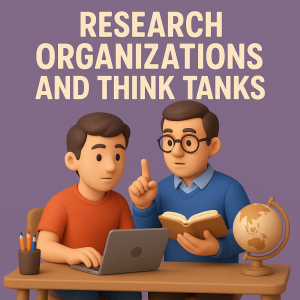
International Sector Growth:
UN System: Various agencies with regional offices in Pakistan
International NGOs: Development organizations, humanitarian agencies
Diplomatic missions: Embassy positions, cultural attaché roles
International financial institutions: World Bank, IMF, Asian Development Bank
Application Strategies and Interview Preparation
Resume Optimization for IR/Social Sciences:
Essential Sections:
Professional summary: Highlighting analytical and cross-cultural competencies
Education credentials: Relevant coursework, thesis topics, academic honors
Research experience: Published papers, conference presentations, ongoing projects
Language proficiencies: Certified language skills, cultural competencies
International experience: Study abroad, exchange programs, international internships
Interview Preparation Frameworks:
Common Interview Categories:
- Technical competency: Policy analysis, research methodology, regional expertise
- Behavioral assessment: Leadership examples, conflict resolution experiences
- Situational analysis: Current events discussion, scenario-based problem solving
- Cultural fit: Organizational values alignment, teamwork capabilities.

Salary Negotiation Considerations:
Research from Nexford University identifies the top 15 highest paying international relations jobs for 2025, including salaries and job opportunities, providing benchmarks for salary expectations. In Pakistan’s context, salary ranges vary significantly between sectors:
Public sector starting salaries: PKR 50,000-80,000 monthly
Private sector opportunities: PKR 60,000-120,000 monthly
International organizations: USD-equivalent salaries with benefits
Consulting and think tanks: Project-based and retainer arrangements
Long-term Career Planning: Creating Your Professional Roadmap
A clear roadmap helps professionals understand how careers evolve over time, from building a foundation to reaching leadership and strategic roles.
Traditional Career Advancement Model:
Years 1-3: Foundation Building
Entry-level positions: Research assistant, junior analyst, program coordinator
Skill development focus: Technical competencies, sector knowledge, networking
Performance metrics: Project completion, analytical quality, stakeholder feedback
Years 4-7: Specialization and Leadership
Mid-level roles: Senior analyst, program manager, deputy director
Expertise development: Regional specialization, subject matter expertise
Leadership responsibilities: Team management, strategic planning, stakeholder engagement
Years 8-15: Executive and Strategic Roles
Senior positions: Director, country representative, senior advisor
Strategic influence: Policy development, organizational direction, industry leadership
External recognition: Speaking engagements, publication authorship, award recognition
Professional Development Planning
Formal Education Advancement:
Professional master’s degrees: MBA, MPA, specialized regional studies
Doctoral pursuits: PhD in relevant fields for academic or senior policy roles
Professional certifications: Project management, conflict resolution, development finance
Skills Enhancement Programs:
Executive education: Short-term programs at prestigious institutions
Language acquisition: Strategic language skills for career advancement
Technology training: Emerging tools in data analysis, digital communication.

Industry Engagement:
Conference participation: Regular attendance at sector-specific events
Publication activities: Academic journals, policy publications, opinion pieces
Speaking opportunities: Expert panels, workshop facilitation, media appearances
Industry-Specific Career Development Paths and Opportunities
Career opportunities for graduates in International Relations and related fields span multiple sectors, ranging from diplomacy and development to academia and the private industry.
Career Opportunities after BS International Relations in Pakistan through CSS:
Diplomatic and Foreign Service Careers
Pakistan Foreign Service: The competitive examination for Pakistan’s Foreign Service offers one of the most prestigious career paths for IR graduates. The process includes:
Written examination: General knowledge, current affairs, specialized subjects
Psychological assessment: Personality evaluation, stress management
Interview process: Panel interviews with senior diplomats
Training program: 18-month diplomatic training at Foreign Service Academy.
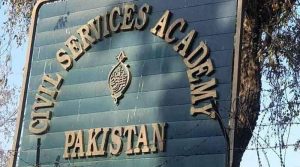
International Diplomatic Opportunities:
UN Diplomatic positions: Various specialized agencies and regional offices
Bilateral mission roles: Cultural attaché, economic counselor, political affairs
International organization postings: SAARC, OIC, Commonwealth Secretariat
Development Sector Career Paths
International Development Organizations: The development sector offers numerous opportunities for Social Sciences graduates interested in global impact careers.
Major Players in Pakistan:
United Nations Development Programme (UNDP): Poverty reduction, governance projects
World Bank Group: Infrastructure development, economic policy advisory
Asian Development Bank: Regional connectivity, economic integration projects
European Union Delegation: Development cooperation, trade facilitation
NGO and Civil Society Sector:
International NGOs: Oxfam, Save the Children, ActionAid operations
Local organizations: Sustainable Development Policy Institute, Pakistan Institute for Peace Studies
Advocacy groups: Human rights organizations, environmental advocacy
Academic and Research Career Trajectories:
University Career Development: Lahore University of Management Sciences (LUMS) invites applications for full-time faculty positions, indicating growth opportunities in academic sectors.
Research Institution Opportunities:
Think tanks: Institute of Strategic Studies Islamabad, Centre for Strategic Studies
Policy research organizations: Pakistan Institute of Development Economics, Applied Economics Research Centre
International research networks: Collaborative research projects, visiting scholar positions
Private Sector Integration:
Corporate Social Responsibility Roles: Multinational corporations increasingly require professionals with social sciences backgrounds for:
Community engagement: Stakeholder relations, local partnership development
Risk assessment: Political risk analysis, social impact evaluation
Sustainability programs: Environmental and social governance initiatives
Consulting and Advisory Services:
Management consulting: Strategy development, organizational transformation
Policy consulting: Government advisory, regulatory compliance
Risk analysis: Political risk, country analysis, market entry strategies

Career Assessment Tools: Measuring Your Professional Development
To effectively track progress, professionals need clear benchmarks that reflect both their achievements and areas for improvement.
Performance Metrics and Growth Indicators
Professional Achievement Metrics:
Publication record: Academic articles, policy papers, opinion pieces
Project portfolio: Successfully completed initiatives, budget management
Network expansion: Professional connections, mentorship relationships
Recognition indicators: Awards, speaking invitations, media citations
Skill Development Tracking:
Language proficiency: Certified testing, practical application opportunities
Technical competencies: Software proficiency, analytical capabilities
Leadership experience: Team management, project leadership, strategic planning
Professional Development Review Process
Annual Career Assessment Framework:
Self-Evaluation Components:
Goal achievement analysis: Progress against established objectives
Skill gap identification: Areas requiring development or enhancement
Network assessment: Quality and diversity of professional relationships
Market positioning: Competitive advantage, unique value proposition
External Feedback Integration:
Supervisor evaluations: Performance feedback, development recommendations
Peer assessments: 360-degree feedback, collaborative effectiveness
Client testimonials: Stakeholder satisfaction, impact measurement
Mentor guidance: Strategic advice, career direction recommendations
Future Planning Adjustments: Based on assessment results, professionals should adjust their career development strategies to include:
Skill enhancement priorities: Emerging competency requirements
Network expansion strategies: Strategic relationship building
Experience diversification: Sector exposure, functional variety
Leadership development: Progressive responsibility assumption
Transforming Education into Professional Success
The journey from education to professional success in International Relations and Social Sciences requires strategic planning, continuous skill development, and adaptability to changing market conditions. For Pakistani graduates, the combination of local market understanding and international exposure creates unique competitive advantages.
Sources:
Nexford University – Highest Paying International Relations Jobs
Pakistan Jobs – International Relations Career Opportunities
Superior Colleges – BS International Relations Career Guide
International Islamic University – Social Sciences Program Overview
Glassdoor – International Relations Jobs in Pakistan
LUMS HR – Faculty Positions
PIDE – Graduate Unemployment Analysis
PakAlumni – University Enrollment Statistics
Dawn News – Graduate Employment Challenges.
